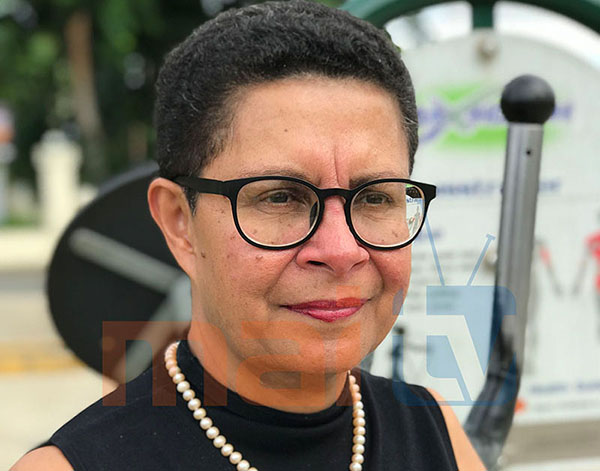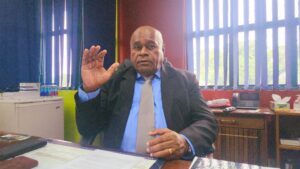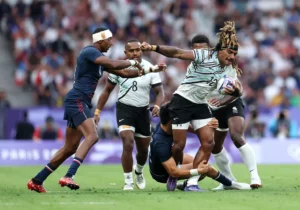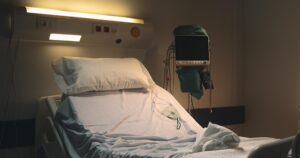Her trailblazing career, both in and out of the sports field, has earned Cathy Wong one of Fiji’s highest honours. Earlier this year, for “her contribution and service to the country”, she was made an Officer of the Order of Fiji (OF).
A physiotherapist and sports administrator, Cathy’s name is synonymous with firsts. She is one of Fiji’s living legends. This tiny lady has a towering reputation, both here and abroad.
Cathy’s ascension, what motivates her to work so hard and keep punching above her weight is indomitable.
Childhood
In class six she punched a classmate – twice her height – in the face for bullying another classmate. Five years later, while in boarding school in Levuka, she led a protest over the quality of food they were served at the hostel.
Cathy has lived a life shaped by a nomadic and gritty childhood. She was number eight in a family of six girls and four boys. Her father worked for the Public Works Department (PWD) and wherever he worked, the family moved.
The experience of being crammed in the back of a truck and hauled to wherever her Dad was posted to work taught Cathy to be flexible, to adjust quickly, to have a good work ethic and to assert herself.
She went after leadership roles early – as class captain in class six (where she threw that punch) and as sports captain in class eight.
Cathy was shipped off to boarding school at St John’s College in Ovalau for her secondary education. She likens her four years there to “civil war”, but meaningful for shaping her resolute character.
“From the realms of the safety of your parents’ home to the realms of boarding life where the food is curry uto with uto, curry cassava with cassava. That was civil war. I think maybe that stunted my growth”, she says, making light of her height.
Things took a turn when Cathy walked passed the nun’s quarters one day and found them devouring a meal of roast chicken and potatoes.
“We would have curry uto with uto every day for seven days a week. Then we would have eggs once a week or once a month. But when I saw the nuns eating chicken, I said this was not on, and then and there I decided to call a strike.”
“I said I want better food for the girls in the dormitory – maybe not roast
chicken, but have eggs at least once a week, have meat once a week. After the
first week of the strike, they agreed to make some changes.”
Perceived as a threat to the established order, Cathy was despatched home at the end of her fifth form with a letter notifying her parents that she was no longer welcome back at the school.
Her parents negotiated her return there as a day scholar, living with relatives.
Physiotherapy
Cathy wanted to become a teacher after high school but her parents could not afford to send her to university.
As she contemplated her options, she was given the opportunity to work with children with cerebral palsy at the Hilton Special School – an opportunity that changed her life.
“Working with the children, making and creating a difference to their lives transformed me,” reflects Cathy.
She managed to secure a civil service scholarship and graduated with a Diploma in Physiotherapy in 1984.
“Three years later, when we formed our Physio Association, I voted myself into the executive committee because I wanted to make sure it went the right way from the start,” Cathy says.
Cathy spent almost eight years at the Colonial War Memorial Hospital (CWM). Without the resources and the technological advances available today, physiotherapists back then were forced to make use of their clinical reasoning and look outside the norm.
Daily clinical experience taught her to realize the power she had in her hands. Her “true calling” was caring for people and helping them regain control of their own lives – especially when they came to seek relief for pain and distress.
Cathy went on to become a clinical educator at the Fiji School of Medicine (before its integration into the Fiji National University).
The pay was good, but Cathy “missed the hands-on experience”. In 1995, after four years of teaching, she decided to join a private practice. When the expatriate owner announced her departure, Cathy leapt at the opportunity to take it on.
With little entrepreneurial skills, she sought the advice of established businesswomen Mere Samisoni, Nur Bano Ali and Mary Wilson to compile her business proposal.
She needed $17,000 to buy the practice, but no bank was willing to offer her a loan.
“One, they didn’t know what physiotherapy was; and two, I was a woman. So, already I was high risk borrower.”
A close friend advised her to approach the Fiji Development Bank which had a New Zealand-funded Women in Business Assistance Scheme. Within 48 hours, her loan was approved for a term of four years. Cathy paid it off in two years with the support of the Women in Business network.
Marriage
Setting up practice presented Cathy with a new dilemma – finding a suitable minder for her young children. Her clinical work and attending to outcalls demanded total commitment and time, which at times encroached into her “family time”.
Seeing the joy physiotherapy work brought Cathy, her husband decided to give up his well-paid marine electronics job to look after the children so that she could focus on advancing her career.
Cathy met her husband, Kevin, while in medical school. They were married in her final year. The couple have three children, and now three grandchildren.
“My husband was earning more than me at the time. Then in 1996, when we decided to branch out and go into private practice, one of us had to resign as the kids were still young. So he sacrificed his career. He resigned, stayed home to look after the kids while I worked on the business.”
Their role switch came at a price for Cathy. Her voice breaks and she fights back tears when she describes the sacrifice.
“The downside is whenever the kids were sick or something happened, my kids would call their father. They are closer to their father than me. It hurts. That’s the cross I chose to bear and it stays with me. That part is always hard for me to say.”
She adds: “I am thankful, that my husband is as strong as he was, because he cooked, he cleaned, he changed their diapers. He did everything for the kids. “
Cathy and Kevin have been married for 37 years.
Sports administration
Her work as a physiotherapist meant working in male-dominated sports such as rugby.
Her short stature also meant that she had to work doubly hard:
“Being shorter than everyone else around me and the only woman filling ‘pioneering’ roles required me to educate myself about so many things to overcome my natural disadvantage.”
Her work as a physiotherapist and in sports has taken her to six continents. She has also met many influential people.
She has featured in the background of Fiji’s historical sporting moments.
Cathy was part of the Flying Fijians’ support team in their historic Rugby World Cup quarter final finish in 2007; and she also led the Fiji team as Chef de Mission to the 2016 Rio Olympics where the Fiji 7s team won the country’s first gold medal.
Cathy considers that triumph her greatest professional achievement.
In 2016, she was appointed to lead women’s rugby in the Oceania region. She hopes this will motivate more women to engage in sport leadership roles, which is one of Cathy’s enduring preoccupations. Early last year, Cathy became the first woman from the region to be appointed to the World Rugby Council, an appointment she believes is the start to bigger things.
“I’d like to see more of that. I want to contribute more to the growth of women in leadership roles. I want to help more women take on executive positions on sporting federations. I want to grow the number of girls who play rugby.”
“I want to see a framework and system put in place to enable girls and women to enjoy equal opportunity both on and off the field,” she declares.
Cathy’s determination remains irrepressible.









